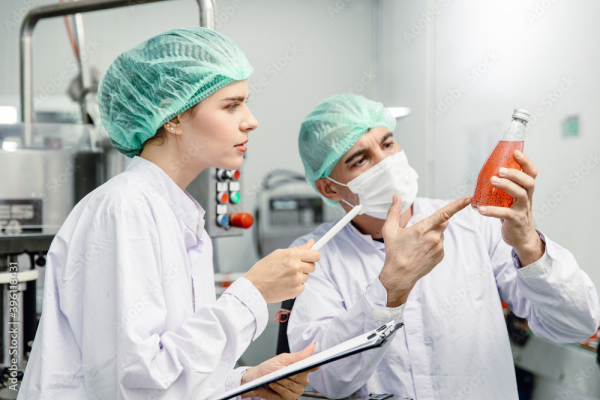Food and medical safety are paramount concerns, directly impacting human health and quality of life. Consequently, food and medical product inspection plays a pivotal role in ensuring product quality, protecting consumer health, and promoting sustainable development in the food and medical industries.
Specialized Inspection Procedures in the Food Industry:
-
Food Safety Inspection: This crucial step entails evaluating the production facility’s conditions, quality management system, food processing procedures, product storage, and transportation.
-
Raw Material Quality Inspection: Incoming raw materials must have a clear origin, be free from harmful substances, pathogenic microorganisms, or prohibited food additives.
-
Nutrient Composition Inspection: Products must meet specified nutrient requirements to provide the body with essential nutrients.
-
Chemical Residue Inspection: Products are tested for pesticide, veterinary drug, heavy metal, and other toxin residues to ensure consumer safety.
-
Microorganism Inspection: Products are examined for pathogenic microorganisms like E. coli, Salmonella, Listeria monocytogenes, to guarantee food safety.
-
Packaging and Labeling Inspection: Product packaging and labeling must be clear, providing complete information on ingredients, expiration date, usage and storage instructions, and hazard warnings (if applicable).

Specialized Inspection Procedures in the Medical Industry:
-
Drug Raw Material Quality Inspection: Pharmaceutical raw materials must have a clear origin, meet international quality standards, and undergo rigorous testing before production.
-
Drug Manufacturing Process Inspection: Drug manufacturing processes must strictly adhere to safety, hygiene, and product quality regulations.
-
Drug Product Quality Inspection: Finished drug products are tested for physicochemical, chemical, and biological parameters to ensure quality and therapeutic efficacy.
-
Drug Safety Inspection: Drugs undergo animal safety testing and clinical trials to ensure they do not cause harmful side effects.
-
Drug Efficacy Inspection: Drugs are evaluated for their therapeutic efficacy in patients to ensure effectiveness in treating diseases and improving patient health.
-
Drug Packaging and Labeling Inspection: Drug packaging and labeling must be clear, providing complete information on ingredients, indications, dosage, administration route, contraindications, side effects (if applicable), and expiration date.
Benefits of Food and Medical Product Inspection:
-
Ensures food and medical product quality and safety.
-
Protects consumer and public health.
-
Promotes sustainable development in the food and medical industries.
-
Enhances the reputation and brand image of food and medical product manufacturers and distributors.
-
Boosts consumer confidence in food and medical products.
Conclusion:
Food and medical product inspection is essential for safeguarding public health and fostering sustainable growth in the food and medical industries. Food and medical product manufacturers and distributors must conduct regular product inspections and strictly adhere to food and medical safety regulations.
If you need professional quality control inspection services, contact VIS today! We ensure your product quality every step of the way.



Related Posts